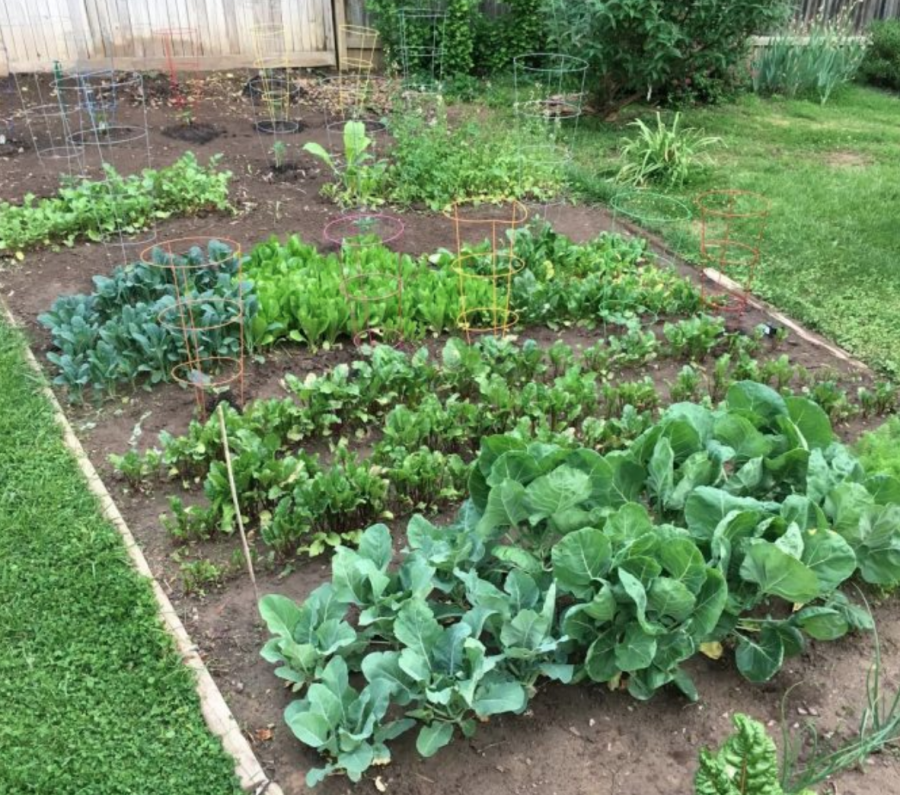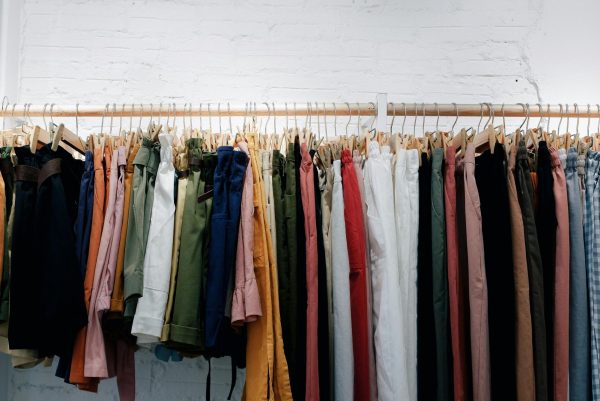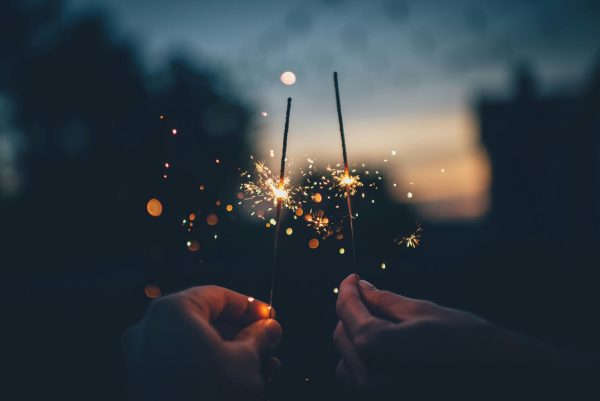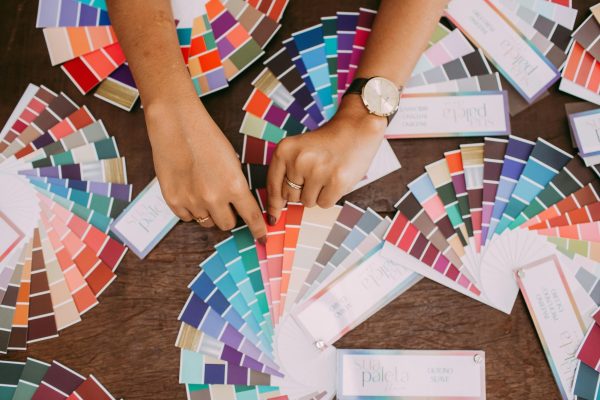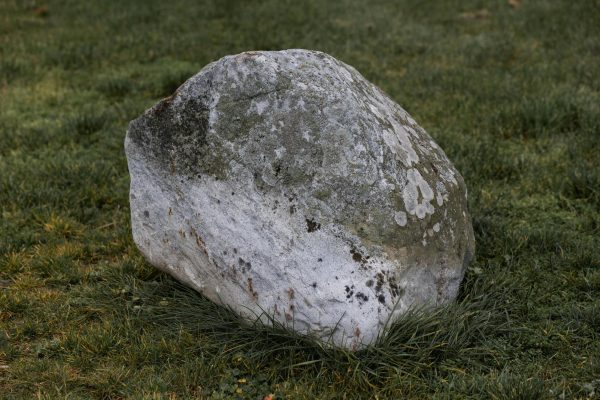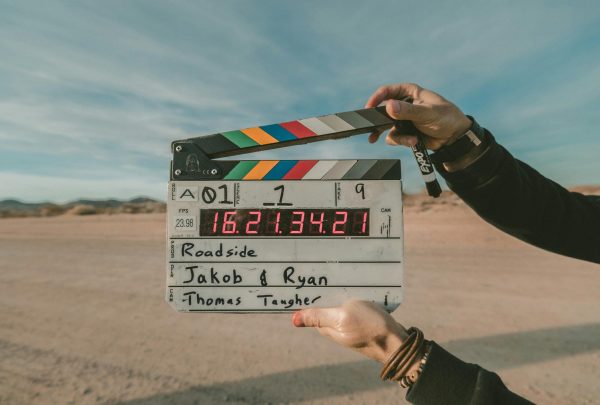If You Can’t Beet Them, Join Them
It’s time that everyone starts planting gardens.
I’m not sure whether our ancestors would find having an excess of zucchini to the point of leaving it in people’s cars funny or a waste. After all, the first humans didn’t have permanent settlements to protect themselves from the elements — instead they traveled across the land to find whatever food they needed to sustain themselves; wherever the food went, humankind went. Since then, humans have settled down to create industrial cities, with the wild and natural world estranged from day-to-day life. Hunting and gathering are in our genetics, however with the advent of modern society humans tend to be more and more disconnected from the world around them. Reestablishing the positive role of plants in our life can be easily achieved with the timeless concept of maintaining domesticated plants, more commonly known as gardening.
Plant life is important to human life: without plants, there wouldn’t be oxygen to breathe or food to eat. The connection between humans and plants doesn’t just end there: one psychology study points to plants boosting your mood and reducing stress. A variety of other psychological studies find connections between plant life and happiness, improved concentration, creativity, self-esteem, and reduced symptoms of anxiety, depression, and PTSD. Beyond the psychological impacts of plants, even being near plants can improve qualities of your life. By nature, plants will improve air quality, even if the air around them is toxic or polluted.
These benefits only increase when you factor in gardening. Gardening, especially outdoors, is physical work. People often don’t realize how much they work when gardening, which can certainly help improve life quality. If you choose to grow edible plants, you can improve your health further by eating fresh produce. When you garden with others, you can also factor in the social benefits of community and relationship building. Or, if you’re not into gardening for any of these other benefits, it can at least save you money. Since buying seeds is relatively cheap compared to buying vegetables or fruits, you will find that starting a garden will save small amounts of money each year as your plants bear fruit.
Furthermore, plants benefit the environment. Starting a garden reduces CO2 emissions both directly and indirectly by reducing car trips to the grocery store and by plant matter absorbing CO2 for photosynthesis. If some wild animals stop by your garden for a snack, it can help improve local biodiversity, even if your visitors are unwelcome. You may also find that bees will spend time in your garden by pollinating your plants. This will help increase biodiversity in the area (those pesky critters can finally stop stealing from your garden!) and by helping bees survive, you’re helping the animals dependent on bees survive as well. Having plants will also improve the quality of soil by attracting worms, insects, and microbes that will help change the soil to better support plant life.
Unfortunately, starting a garden if your land isn’t ready for it may have a high initial cost and it can take months or years to make up for your initial investment. Most soil isn’t immediately ready to support plant life and it can take a lot of work to prepare it to grow plants efficiently. If plants are having trouble growing, making your own compost or purchasing fertilizer can be a hassle. On top of that, many people live in apartments without their own outdoor space, meaning that most people don’t have their own earth to grow a garden in. Even if people have the money, space, and materials to start their garden, many gardens fall through from lack of maintenance or aren’t even started due to the time and effort put into starting a garden.
Despite this, there are still many options available. Your first step at gardening doesn’t have to be big because you can pick just a few small plants and stick to those. If you are successful, you can try adding different types each year to expand your garden. Preparing your soil is all about taking the first steps, and most soil is open to life because most of the nutrients in it haven’t been used for crops yet! So, while you’re getting your garden on its feet, it will have the benefit of those unused nutrients. When nutrients start running low, the German government is already preparing its members to start composting. Using the things out of your bio-bin at home, you can start making your own compost with a small investment. Another benefit of living in Germany is that you can rent a Schrebergarten — a plot of land dedicated to gardening! Most cities have a Kleingartenverein, which is an organization that can provide these plots of land for you. In our area, most gardens will be 100-200 euros a year (link is in German).
So, you want to start a garden? Many guides tend to go into a lot of detail, which can be quite off-putting. Here is a quick summary from what I have gathered from many gardening guides:
1. Choose the land you’re gardening in.
- Make sure that your plot of land will receive sun for most of the day.
- You also want to consider whether you want to make a raised garden bed or grow the plants directly in the ground (You can find the pros and cons in the Earth Easy guide below!)
- Will you be doing it at your own house or in a rented garden? You may need to check with your landlord if you are renting, and your Verein if you are using a Kleingarten.
- Is your plot located near a water source? Since you will have to water your plants, it would be useful to ensure it is located near a water source.
2. Consider the soil.
- If your soil has never grown plant life, it may not be suitable for raising plants and you may need to invest in getting fertilizer or compost to aid with the growing.
- It’s also possible that it is suitable for growing plants, since it may already have minerals available and you may be able to go without fertilizer during your first year.
- After your first year of gardening, it is highly likely that you will need to create your own compost to help your soil develop.
3. Plant your seeds.
- Make sure that they are spaced far enough apart that they will have their own space to grow.
- Make sure you plant your seeds at the right time. Most plants need to be planted at a specific time so that they can be harvested at the best time. Websites like this one are useful for figuring out when growing should start and what is best to plant.
- Don’t plant too much your first time around — get used to the land you have and then try a little bit more your second time around.
4. Wait for the plants to grow
- While you are waiting for your plants to grow, you will need to water them. Watering them a little bit in the morning or evening will help prevent losing too much water to evaporation.
- You will also want to make sure no weeds grow in your garden bed. Removing weeds as soon as you can will ensure that your plants will thrive.
5. Reap your bounty!
- Based on what you planted, you will have to do a little bit of research to find the optimum time to harvest them.
- Different plants will also have different harvesting methods. A Google search should help you find the way to get the most out of each plant
6. Prepare for next year
- You can let your plants die or you can pick them to compost them.
- You shouldn’t worry too much about preparing the soil until you plant again next year.
- One thing to consider is crop rotations: change what you plant each year to prevent diseases from building up in your plants.
Obviously, there are many resources out there which can help you develop your garden. For more in depth information about growing a garden, information can be found on the Earth Easy or Farmer’s Almanac websites. If you’re looking for local information about Kleingartenvereins, check out the Hochtaunus KGV website or the Hessen KGV website.

